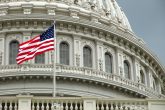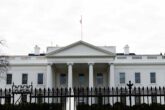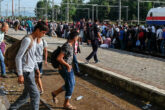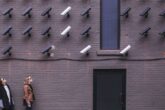August 13, 2020
There’s Still Time to Protect American Democracy Against Threats to the 2020 Elections
This commentary identifies two simultaneous threats to the integrity of the 2020 U.S. elections: continuing malign foreign interference and complications surrounding the administration of elections due to the COVID-19 pandemic. Addressing both in a way that fosters confidence in election outcomes must be a priority for all levels of the U.S. government, state and local governments, private sector actors, and society at large. This is the first in a series of commentaries in advance of a September 17, 2020, virtual symposium on foreign interference and election integrity, to be co-hosted by the Center for a New American Security, and the Center for Ethics and the Rule of the Law and Annenberg Public Policy Center, both of the University of Pennsylvania. Each commentary in the series will explore a particular angle of foreign interference in elections, election security, and fostering confidence in the U.S. elections.
The November 2020 elections may be the most consequential in U.S. history to date. Dangerous foreign adversaries, combined with the rise of the far right in democratic countries around the world, pose a significant threat to the strength of contemporary democracies. A new intelligence community assessment warns of the ongoing dangers here: “foreign states will continue to use covert and overt influence measures in their attempts to sway U.S. voters’ preferences and perspectives, shift U.S. policies, increase discord in the United States, and undermine the American people’s confidence in our democratic process.” As we approach the 2020 U.S. elections, the importance of protecting the integrity of the vote—the very foundation of democratic governance—could not be clearer. Yet the obstacles to rendering such protection have never been greater. The struggle to shield U.S. elections from malign foreign interference was difficult enough in 2016. This time there are additional challenges that make the task Herculean.
As both government and outside reviews of 2016 election interference activities have confirmed, Russian agents engaged in activities that included probing voter registration systems electronically and, in parallel, conducting a wide-ranging influence campaign targeting U.S. voters on social media platforms. Although the bipartisan review conducted by the Senate Select Committee on Intelligence stated that the intelligence community had not identified instances of actual votes being changed or manipulated, foreign activities involved extensive use of social media to disseminate propaganda as well as direct malign cyber activity against individuals and entities involved in the election.
As we approach the 2020 U.S. elections, the importance of protecting the integrity of the vote—the very foundation of democratic governance—could not be clearer.
Unlike in 2016, however, we now live in a global pandemic-- a crisis that has reached epic proportions in the United States and may be worse come November. The number of Americans that have contracted the virus and have died of it is growing exponentially. The virus will continue to be with us through the November elections, and well beyond.
Accordingly, hopes are fading that we can rely on traditional, in-person voting on November 3, as most of the country has in the past. In fact, we have already seen the deleterious effects of the pandemic on the integrity of our elections. Primaries in Ohio were delayed this spring. Elections in Wisconsin and Georgia were chaotic, with long lines for in-person voting and many usual polling places closed; and the results of tight New York primary races took longer than a week to be announced. In the case of Wisconsin, the Supreme Court entertained an emergency petition brought by Republicans to challenge a federal district court order extending voting because of confusion relating to absentee ballots. The court issued an unsigned decision that may have resulted in the disenfranchisement of nearly 200,000 Wisconsinites in the April primary, according to statistics from the Wisconsin Elections Commission. The decision will make it more difficult for states to fashion creative remedies to avoid widespread disenfranchisement due to the pandemic, as lower-level courts will be constrained in what they can accept with regard to absentee and mail-in ballots. The likely result is that opportunities for registered voters to cast ballots safely and easily may be reduced.
We have already seen the deleterious effects of the pandemic on the integrity of our elections.
Recent propaganda efforts by Russia, as well as China and Iran, suggest that online disinformation goes beyond directly election-related issues. As news reports earlier this year disclosed, Russia and China have been spreading disinformation relating to the virus. Right-leaning domestic media outlets have also been engaging in pandemic disinformation in recent months, according to studies conducted by the Annenberg Public Policy Center. Foreign sources understand that the fate of American democracy, at least in the short run, is inextricably linked to the trajectory of the virus in the U.S. between now and November.
Threats to U.S. democracy have evolved significantly since the elections of 2016. While state and local governments have been seeking to improve the mechanics of elections, the risk of foreign interference has grown steadily as new malign actors have learned from Russia’s example and methods of cyberattack and social media manipulation become ever more sophisticated and pernicious. While the United States may be preeminent in terms of its kinetic military prowess, it lags behind in its strategy and ability to counter malign cyber activity. Voter turnout and a poorly informed citizenry are challenges in the U.S. under the best of circumstances. For the 2020 elections, persistent problems have become profound liabilities. The interplay of the increasing sophistication of our foreign adversaries, U.S. political actors who capitalize on and benefit from foreign interference in our elections, and a global health emergency of unprecedented proportions in the modern era have thus set the stage for the 2020 elections to be a dangerous inflection point in the history of U.S. democracy.
With fewer than 100 days until the November elections, there are several short-term steps we urgently need to take to improve the integrity of the results. First, in the remaining weeks, social media platforms should dramatically step up their efforts to protect against the pernicious effects of foreign propaganda in the run up to the election. Twitter, for example, banned foreign-sourced advertisements altogether, but other social media platforms have not followed suit. At the very least, social media platforms must provide transparency about the source of content on their platforms, such as consistently labeling bots and the sources of ads, in order to inform citizens of the source of the political information they are receiving. It is even more imperative that they take immediate steps to address false information relating to the pandemic, especially when the release of such propaganda is directed towards political purposes. Twitter recently announced steps to increase transparency. Although other platforms have taken additional measures in recent months to label political ads and identify misinformation, it is unsurprising that these voluntary measures fall far short of what is needed. While waiting for federal and local action, social media companies should take immediate and effective action to ensure that their platforms distribute reliable information and avoid political messaging tainted by malign foreign influence.
Second, all states should immediately facilitate paper ballot backups, a primitive defense that 21st-century technologists agree is necessary at this stage, as well as voter verification, designed to confirm that the votes of individuals match their own understanding of the ballots they cast. States and local officials, with federal government assistance and support, should implement technologies to facilitate audits of election administration systems to ensure there is always a mechanism for discerning cyber attempts to affect voting systems. As of July 2020, at least eight states still do not have paper ballot backup systems.
Third, national security professionals, and the country at large, need to be crystal clear that the right to vote is part of our “critical infrastructure,” and that the integrity of the U.S. electoral system is a crucial national security priority for the country as a whole. The consequences for attacking critical infrastructure need to be carefully and clearly articulated. If there were a consensus regarding foreign interference, and political will among U.S. politicians, we could send our adversaries a clear message evidencing our intent to take action again foreign actors trying to unsettle our democracy.
Finally, the executive and legislative branches must provide greater transparency to the public regarding intelligence community assessments of malign foreign attempts to interfere with the U.S. election. Candidates can do their part by implementing responsible cybersecurity practices for campaign systems and staff, as well as pledging to adhere to the campaign finance laws and refuse any offer of foreign assistance during a political campaign. They should pledge as well that any offers from foreign powers should be immediately reported to the FBI.
Similarly, the media should take all precautions to avoid being manipulated by foreign actors and their cutouts. Journalists and other media should approach information from questionable sources armed with a clear understanding of the methods used by foreign intelligence services to influence the 2016 campaign, which included using purported media outlets to spread material obtained through cyberattacks. The more the media is able to ensure the integrity of its reporting, the lower the number of outlets that will be available for propaganda and the more the American people will be assured that their votes are formed on the basis of reliable information.
As our framers understood, democracy works only when informed citizens exercise their right to civic participation, based on a clear understanding of what serves their interests and the interests of the broader society. Foreign influence in elections weakens the effective exercise of that right. The American people should reject attempts to have their voices silenced by foreign actors seeking to influence our elections to their benefit. Protecting the integrity of our elections is a civic imperative, one that should engage all Americans and should unite them, regardless of political party. It is not too late to increase confidence in the outcome of the November elections.
About the Authors
Carrie Cordero is the Robert M. Gates Senior Fellow at CNAS and Adjunct Professor of Law at Georgetown University Law Center.
Claire Finkelstein is the Algernon Biddle Professor of Law and Professor of Philosophy and Faculty Director at the Center for Ethics and the Rule of Law, University of Pennsylvania.
Learn More
From August to September 2020, CNAS will release weekly commentaries exploring issues related to foreign interference in elections and election security in Europe and the United States. Expert authors participating in the series will examine how Europe is addressing foreign interference in its elections generally, how principles of international law apply to election threats, and how Poland specifically is countering disinformation. Shifting to the United States, commentaries from civil society and federal and state government officials will address voter attitudes about foreign interference, election security, and fostering confidence in the November election.
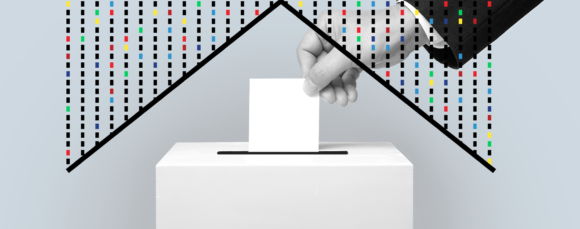
Bolstering American Democracy Against Threats to the 2020 Elections
About this commentary series On August 13, 2020, the Center for a New American Security (CNAS), in collaboration with the University of Pennsylvania’s Center for Ethics and Ru...
Read MoreMore from CNAS
-
Securing U.S. Democracy Initiative
Sharper: National Security in a Divided CongressFollowing the 2022 midterm elections, a new U.S. Congress was sworn in, resulting in a divided House and Senate with narrow margins. Key national security legislative items ar...
By Anna Pederson & Cameron Edinburgh
-
Securing U.S. Democracy Initiative
Schedule F: An Unwelcome ResurgenceThe U.S. government is able to take on high-risk, high-cost ventures—nuclear security, pandemic response, environmental clean-up, food safety, and more—because civil servants ...
By Loren DeJonge Schulman
-
Securing U.S. Democracy Initiative
Western Hemisphere Migration is a Long-Term ChallengeAddressing western hemisphere migration should be a national and international priority....
By Carrie Cordero & Cris Ramón
-
Securing U.S. Democracy Initiative
The Lawfare Podcast: Klein and Cordero on the Latest FISA NumbersTo discuss the latest in FISA transparency news, the data and what it all means, Benjamin Wittes sat down on Lawfare Live with Carrie Cordero of the Center for a New American ...
By Carrie Cordero

